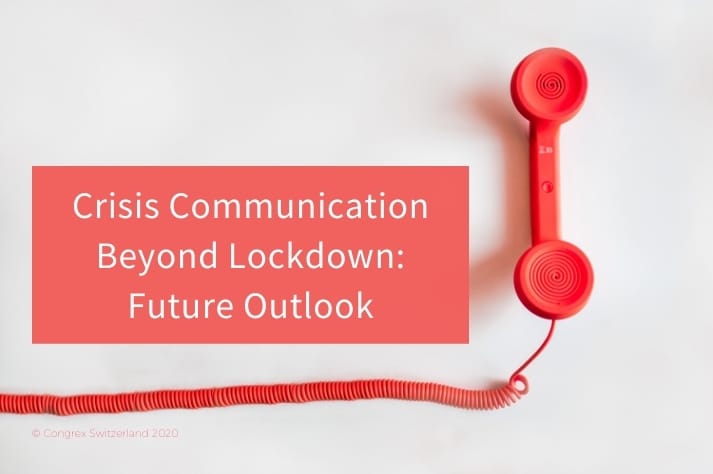Times of crisis test how well community managers know their communities. This blog explains how crisis communication provides a vital opportunity to teach, to learn and to practise the art of deep listening.
Communication during a crisis: the crisis communication plan revisited
Let us ask you a question: how is your internal crisis response team coping? Early in the Covid crisis, respected management leader consultancies were providing much-needed insights into the immediate effects on leaders and communities alike. The magnitude of the problem was expressed in terms such as “landscape-scale“, and indeed the landscape has changed dramatically, and is still changing.
RELATED: Bringing Diversity and Inclusiveness Into Association Leadership In Times Of Crisis
Member associations by their very nature are well-structured to provide support to their community in a crisis, and many will have made use of their particular plans and teams to streamline the crisis communication that was required. However, the units themselves need support and strategies need regular critical analysis to keep communication channels operating effectively. Checking regularly to see if anyone on the team needs a break is vital. Community managers and teams that are fresh and well-supported keep members fortified and heartened.
The power of listening in times of crisis
We often use the word resilience regarding communication during a crisis. Yet, resiliency is not a quality that arises directly through communication, but through the art of deep listening and providing support based on what is heard and truly understood. Effective communication can express empathy and interest, but resilience is a quality that comes from the community itself. In this instance, the collective voice of each association member. It is provided by the community, rather than imposed through external communication.
The critical process for any community manager here is to listen; to confirm that they have understood, and to offer appropriate support that matches the need as precisely as possible. It is not a one-off action, either. There must be follow-through to see that the support and information have been useful. That is the way to keep members feeling they have received the appropriate crisis response and that their proper resilience is recognised and strengthened.
RELATED: Seven Top Tips for Association Member Onboarding
Research has shown that interest in, and affiliation to membership organisations grew by a prodigious amount in the early part of 2020 and that logins to websites, increased posting and sharing to members’ message boards also increased accordingly. What this says is that in times of crisis, membership organisations are places to which people turn for guidance and reassurance.
Crisis communication: when, how and how much?
As the world became aware of the long-term impact of Covid-19, and working from home became the new normal for those who could do so, community platforms, social channels, online learning and video conferencing finally came of age. Consider for a moment the challenges that member organisations and their people have faced and overcome in a few short months, and the new skills they have acquired. The support the community now needs is different from the crisis response required at the start of lockdown.
The most effective communication, especially when it is also external communication, needs to be bespoke. Selecting the right communication channels to provide the support that is tailored for each individual or company in the member organisation is key to providing appropriate crisis communication during this time. Some stakeholders and individuals will welcome regular updates via email, others a phone call, while too much contact can leave some members feeling overwhelmed. Online archives of conferences, workshops and “best of” blogs can come into their own at this time.
RELATED: Steps For Association Membership Development and Retention
No one needs to miss out because they could not attend a webinar live; they can access the same material on their own time. The ultimate aim is to provide trusted information that will stand the test of time. And an essential task for any members association is to help the members avoid the landslide of fake and scam material that accompanies a crisis.
Conclusion: keep calm, communicate, and listen too
In conclusion: if you can keep your head while all around you are losing theirs, you will be recognised for your ability to provide effective communication to your member association during a crisis. Their confidence in the quality of your crisis communication is based on the value and relevance of the information you provide.
This, in turn, is based on the quality of your proper crisis communication plan for your association, which rests on your ability to assess a rapidly changing situation and obtain real facts through respected communication channels. It is just as important to be kind as to be informed, and always leave members feeling uplifted and reassured rather than overwhelmed by yet more information.
Most important of all is listening inside the community. Listen to their worries and also remarkable achievements, over the past few months.
——
Congrex Switzerland is an internationally operating agency delivering customised solutions. This encompasses the overall organisation of conferences and meetings, including the management of hotel rooms and the strategic consultancy. Annually Congrex Switzerland organises approximately 45 events with over 73’000 delegates. Amongst our clients are international associations, governmental organisations and corporations.








